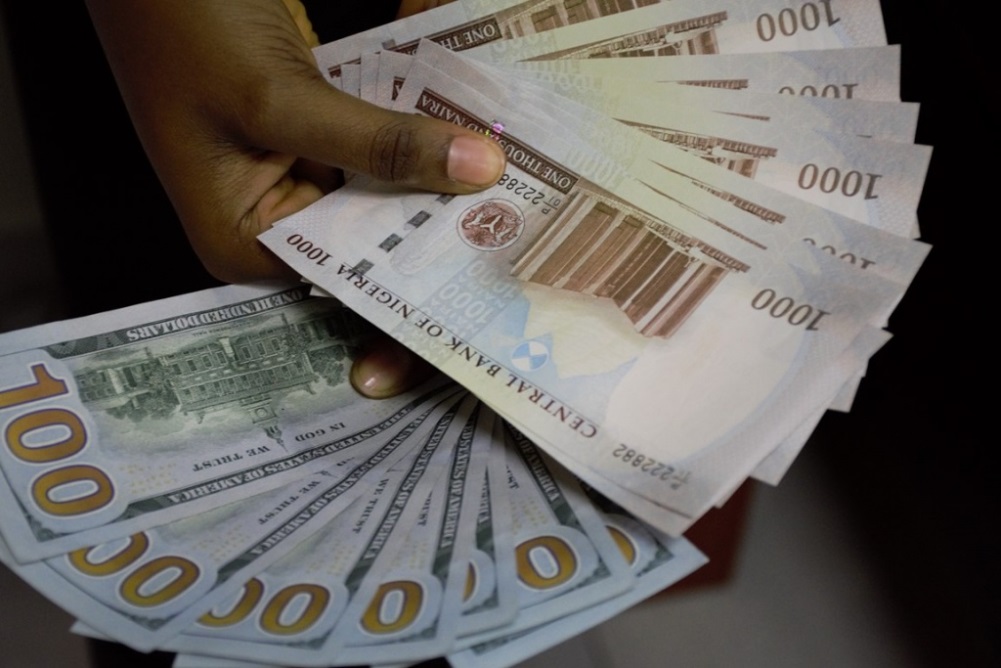Nigeria’s Liberalized Foreign Exchange Regime: Current Impacts And The Near Future
Posted on Thu 13 Oct 2016
- Download Resource
RECENT DEVELOPMENTS
Unfortunately, the new FX Guidelines has come at a time when the country is “technically in recession”.
Decaying infrastructures and weak economic fundamentals have resulted in low productivity and competitiveness, high import bill and poor FX earnings. Under a floating FX policy, these factors combine to trigger the devaluation of the Naira with larger economic consequences. Challenges of volatility and illiquidity that trail the liberalized FX market with the attendant negative impacts on businesses (particularly imports, banking & loan markets and manufacturing) have a multiplier effect on the overall economy.
The manufacturing sector (being one of the worst hit by the impacts of the new flexible FX policy), has experienced incessant closure of factories and massive lay-off of workers in recent times. The Manufacturers Association of Nigeria (“MAN”) has consistently issued statements on how scarcity of FX for the import of inputs of production, in addition to the continued ban from sourcing FX from the inter-bank market for importation of the ‘41 blacklisted items; has continually dealt a death blow on the real sector of the economy.
Although the ban on the ‘41 blacklisted items’ remains, the CBN, in addressing the concerns of MAN, directed, in a Circular (Ref: TED/FEM/FPC/GEN/01/007) dated August 22, 2016 that, until otherwise directed; all Authorized Dealers shall dedicate at least 60 percent of their total FX purchases from all sources, including inter-bank, to end users from the manufacturing sector for the purpose of importation of raw materials, plant and machinery while the balance of 40 percent should be used to meet other visible and invisible trade obligations. This regulatory intervention is expected to revamp the production capacity of the manufacturing sector, in the short to medium term.
Recently, on August 23, 2016 the apex bank barred 9 deposit money banks (“DMBs”) from participating in the FX market, for failure to promptly remit to the CBN (in non-compliance with the Treasury Single Account (“TSA”) policy of the federal government), the dollar proceeds of oil sales deposited with the banks by the Nigerian National Petroleum Corporation (“NNPC”). Notably, the affected 9 DMBs are Authorized Dealers and some of them are also Primary Market Dealers in the FX market. This, expectedly, worsened the challenges confronting the FX market as the Naira immediately fell further against the dollar at the inter-bank market and against the greenback at the BDC segment; with FX end-users finding it difficult establishing letters of credit through the affected Authorized Dealers. The ban placed on the affected banks was however lifted few days after, following series of meetings between the CBN and other market stakeholders, to resolve the crisis.
Nonetheless, the FX market has begun to record positive results lately, as foreign investors (confident of the transparency and credibility of price formation that are brought into the market by the new FX Guidelines) start to return into the country with millions of dollars’ worth of FPIs. As this development continues and increases in volume in the coming months, the liquidity challenge and the associated volatility of FX rates at the inter-bank market are expected to reduce.
CONCLUSIONS
The new regime in the Nigerian FX market, which became operational in June 2016, is still within its first six months of implementation. We believe that whilst the flexible exchange rate policy, operated within a Single Market structure, is appropriate for rebuilding confidence of investors and attracting inflow of growth capital into the economy; the government and the apex bank must endeavor to keep the policy stable and without undue interference.
It is recommended that the current overall economic objectives of the CBN, articulated in the “Monetary, Credit, Foreign Trade and Exchange Policy Guidelines for Fiscal Years 2016/2017”, should be implemented with great care; so as not to trigger an unintended consequence of a further fall into economic recession.
We advocate an economic growth plan that will support local content development through massive incentives and adequate credit facilities made available to domestic industries. Naturally, as the national industrial capacity grows and local production rises, economic competitiveness will be enhanced and importation of items will ordinarily become unattractive.
In the near future, the economy is expected to rebound as the apex bank maintains policy consistency and a transparent exchange system. Hopefully, the Naira will soon find its equilibrium at the FX market and firm against the major foreign currencies.
The Grey Matter Concept is an initiative of the law firm, Banwo & Ighodalo
DISCLAIMER: This article is only intended to provide general information on the subject matter and does not by itself create a client/attorney relationship between readers and our Law Firm. Specialist legal advice should be sought about the readers’ specific circumstances when they arise.
More Insight
 Fri 21 Mar 2025
Fri 21 Mar 2025IP PROTECTION FRAMEWORK IN NIGERIA - TRADEMARKS
 Wed 18 Dec 2024
Wed 18 Dec 2024SEC’s Draft Rules Facilitate Pension Funds’ Investment In ...





